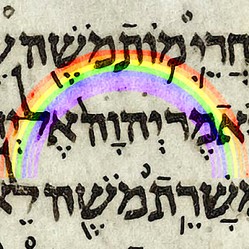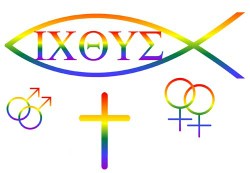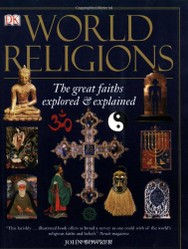The 'Holiness Code' is the name Jewish scholars gave to the chapters 17 to 26 of the book Leviticus. The word 'Holy' had at that time an additional meaning to how we would use it today. Holy meant 'set apart' and especially to be set apart from their neighbors, both in behavior and worship. Whilst the tribes, that later would become Israel, worshiped only one God, its neighbors were polytheistic, worshiping many deities. And some of them even included Shrine (Temple) or Sacred Prostitution into their worship, see Deuteronomy 23:17 "No Israelite man or woman is to become a shrine prostitute."
The other need for these type of holiness stemmed also from the need of preserving one distinctive cultural identity as 'The Chosen People of God' amongst the many and varied neighboring tribes. So, the Holiness Code, at that time, helped people to:
- Be ritually clean in order to be able worship God in the right way.
- Be different from their neighbors in order to preserve their cultural identity.
- Be healthy by following dietary laws important for that time and climate.
- And, with regard to Leviticus 18:22, to procreate and increase in numbers.
Regarding the last point, it is important to note that at that time people believed that procreation was achieved when a man 'planted his seed' in the womb of a woman, the role of the woman was merely that of 'incubator' for his seed. This might explain why most Bible verses concerning homosexual acts were only concerned about those between two men, and not about those between two women. Procreation was incredibly important at that time as the Jewish tribes were outnumbered by powerful neighbors and one way to overcome this disadvantage was to grow the tribe. And the union of two men, or of two women, wouldn't have had any offspring.
Jews followed the Holiness Code until the year 70 of our time completely, but with the destruction of the temple in Jerusalem by the Romans, their main sanctuary, many of its laws and commandments regarding temple worship and sacrifice couldn't be followed anymore. Most Jews today will indeed still follow the dietary laws and all the others that don't relate directly to temple and sacrifice. Some Christians will make a kind of 'pick and choose' decision and will follow only a handful of these laws and commandments, normally ignoring all the dietary laws, but insisting that all the rules for sexual behavior laid out in the Holiness Code have to be followed.
On the other hand there are small groups of Christians that do follow the Jewish dietary laws still today and some Churches that don't teach that Homosexuality is a sin, but instead see it as a normal variation of human sexuality and even bless same-sex couples. The best known example for this is perhaps the Episcopal Church in America which ordained the first openly gay and partnered bishop in modern history, +Gene Robinson, Diocese of New Hampshire.
So, what is right? Whose interpretation is the correct one? What decides which laws we should still follow and which not? For this we have to delve deeper into the text.














 How to Choose the Topic for your First Bookon 12/17/2012
How to Choose the Topic for your First Bookon 12/17/2012
 Why I published my first book on Amazon - and you should too ;-)on 11/30/2012
Why I published my first book on Amazon - and you should too ;-)on 11/30/2012
 What to do with Kids in Prague - Go To the ZOOon 10/30/2012
What to do with Kids in Prague - Go To the ZOOon 10/30/2012
 Choco Story Museum - Things to do with Kids in Pragueon 10/30/2012
Choco Story Museum - Things to do with Kids in Pragueon 10/30/2012



Comments
Thanks for your thoughtful comment Cazort! Yes, things are changing slowly. A big and great news lately was that Exodus International, a Christian organization that believed to be able to change sexual orientation, apologized to the LGBTQ community and recognized that they were on the wrong path, see http://exodusinternational.org/2013/0... . I truly dream of the day that sexual orientation has the same importance like left/right handedness or the fact that somebody wears glasses --- or not. We will get there one day - with the help of {insert personal deity here} SY
This has always made sense to me. There are many passages in the Bible, especially in the Old Testament, but many in the New Testament too, that few or no Christians take literally. Although people use scripture to defend their views on homosexuality, I think these views are ultimately cultural views that are to a degree independent of scripture.
I've seen people slowly change their views on this issue over time. I think it's important to look at things like how people's actions affect others, and also what the scientific and psychological literature has to say. I think that there is substantial evidence that most people have an innate sexual orientation that they can't change, and I also think the evidence is strong that same-sex relationships are just as healthy as hetero relationships.
I do think though that it's important to respect people who have a wide range of views on the issue. Sometimes I hear people attacking, demonizing, or labelling as "bigots" or "homophobes" people who believe that homosexuality or homosexual acts go contrary to their religious beliefs. I think it's important to respect people regardless of what their views are--even if, like me, we see those views themselves to be problematic.
And it is quite likely that both of them would have made good priests! Celibacy in general is another item the Roman-Catholic Church has to address. The reasons for it are more financial and historical (inheritance) than theological. Obligatory celibacy is "quite" young in the Roman-Catholic Church as it was "only" written into law for all priests in the 12th century at the First Lateran Council (1123).
Well, Sam, you have made me cast my mind back to my time in theological college in 1968.[I dropped out] Being a Catholic college celibacy was the rule [it was not why left.] We had two men who fell in love and were asked to leave. Celibacy was the rule, so that was that. But what always saddened me was that these two were among the most pleasant people in the college [nicer by far than certain others who remained.]
You are right Frankbeswick that I missed out the reasoning the Roman-Catholic Church typically uses and concentrated more on that what we all have in common - scripture. As for Genesis 1:27 that would be a whole new article. For the moment just this thought "many Chrisians believe that this indicates that the union of man and woman is part of God's plan for humanity." Correct, but that doesn't have to mean that God's plan is exclusive to other partnerships.
A point of information. The argument that you have given works most strongly in the context of Protestant theology, as Protestants base their views entirely on Scripture, whereas Catholics believe that the Bible is the product of the spirit living and expressing itself in the church. Hence church tradition runs alongside the Bible and the Bible is interpreted through the teaching authority of the church.Hence the overall view of the church would have to be taken into account in any Catholic thought on homosexuality.
However, there is another Scripture that the article forgot. In Genesis 1:27 it states that God made man and woman in his own image and likeness, so many Chrisians believe that this indicates that the union of man and woman is part of God's plan for humanity.
Having said all this,homosexuals exist and have emotional needs as strong as those of heterosexuals.
Thanks Todd for your very kind words. Please feel free to share the information in this article with others that might still struggle. Times are changing, thanks God, and even people like Stephen Chalke are reconsidering the facts and changing their attitude, see http://www.independent.co.uk/news/uk/...
Sam, I wish to thank you from the bottom of my heart. I had heard of an explanation of this type that people I have known talk about but, you put things in such an understandable context. As a gay man, and a Christian it gives me great comfort to know that I was not a hated or flawed person in God's eyes. I have to say that I really have believed it all along but, putting the dots together as you have is so wonderful. Thanks for the comfort and understanding that you have brought to many gay christians.
You may want to do a word study of oikonomia or "dispensation/administration," as well as a study of the Hebrew idiom of permission. It is very enlightening on the ways in which God's Word remains coherent from Old Testament to New. Most people have a very difficult reconciling the vengeful God of the Old Testament with the love-centered grace-fueled God of the New Testament.
I feel compelled to bring this up having read some of the comments below... I am a devout Christian and I can honestly say that I do not hate homosexuals. If I do not share the same beliefs as a Muslim individual, or someone who is Hindi, do I automatically hate those people? I choose to love unconditionally (agape also makes for a great word study), desiring for those who do not believe to believe. It is not out of arrogance, but because I have seen physical, mental and spiritual abundance in my own life by practicing the principles in the word (as well as the pitfalls of failing to obey) and I desire for "all men to be saved and come unto a knowledge of the truth." I believe it is possible to disagree, but I believe the love of God reaches beyond any of the boundaries we can imagine. People are not evil, but sincerity is no guarantee for truth, or for truthful living.
Having said that mouthful, I respect the time and effort you have put in. It's good to know that this is something you are passionate enough about to look it up for yourself. It's farther than most Christians get.
What an interesting and thought provoking piece! I did not have much religious instruction growing up, and about 10 yrs. ago embarked upon an Bible study with an acquaintance. I looked at it as sort of a history lesson, and was very surprised about what I read. As you say, a concordance is very helpful to get things in proportion. Many of the laws and rules have reasons we do not think of today. The Jews introduced basic rules of sanitation by making sure sick people were apart from the well ones. You pick up all kinds of gems like that when you read it all. I did not commit to Christianity after my study, being a Pagan at heart. But I learned so much and am glad I did!